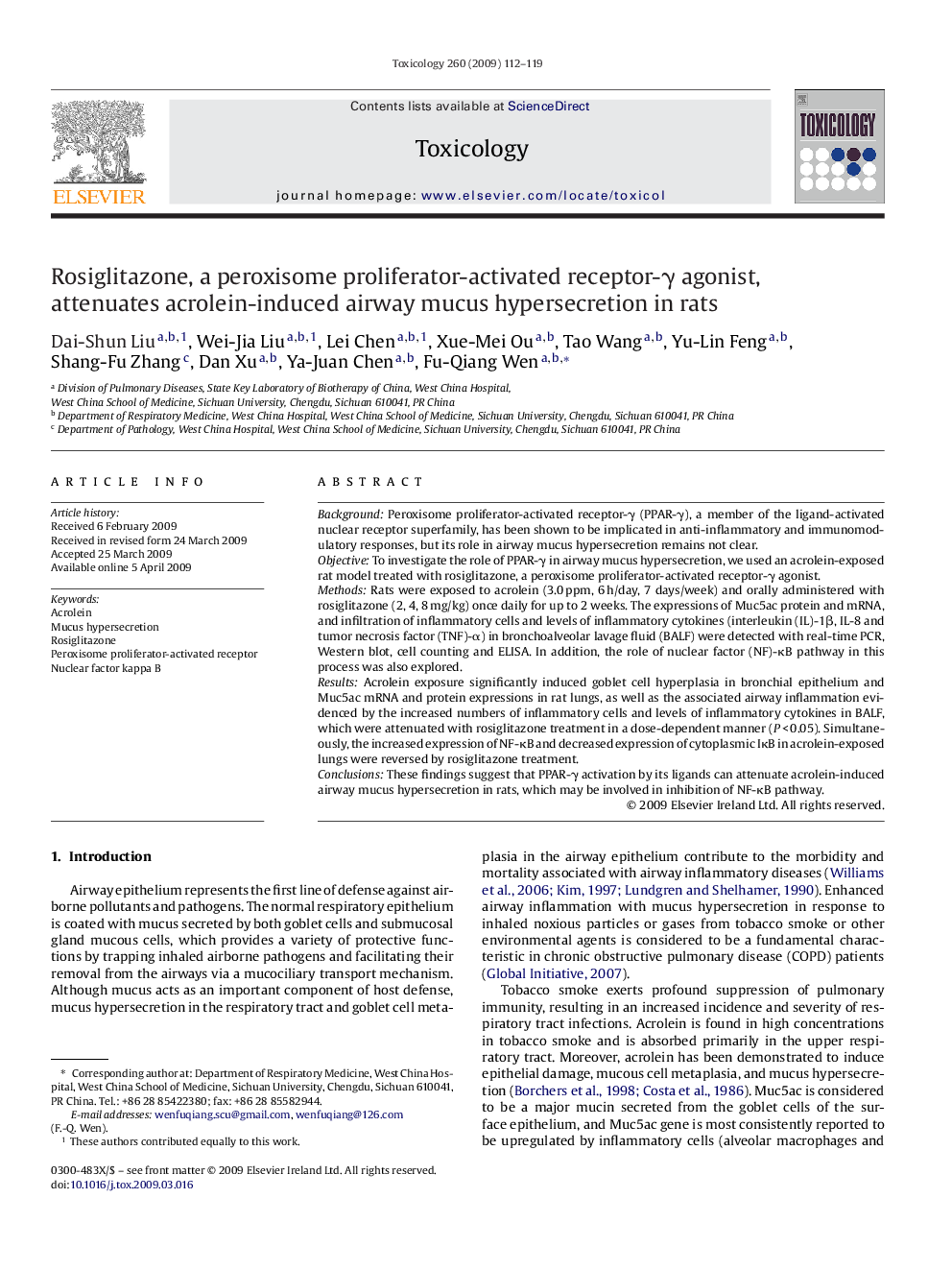| Article ID | Journal | Published Year | Pages | File Type |
|---|---|---|---|---|
| 2596851 | Toxicology | 2009 | 8 Pages |
BackgroundPeroxisome proliferator-activated receptor-γ (PPAR-γ), a member of the ligand-activated nuclear receptor superfamily, has been shown to be implicated in anti-inflammatory and immunomodulatory responses, but its role in airway mucus hypersecretion remains not clear.ObjectiveTo investigate the role of PPAR-γ in airway mucus hypersecretion, we used an acrolein-exposed rat model treated with rosiglitazone, a peroxisome proliferator-activated receptor-γ agonist.MethodsRats were exposed to acrolein (3.0 ppm, 6 h/day, 7 days/week) and orally administered with rosiglitazone (2, 4, 8 mg/kg) once daily for up to 2 weeks. The expressions of Muc5ac protein and mRNA, and infiltration of inflammatory cells and levels of inflammatory cytokines (interleukin (IL)-1β, IL-8 and tumor necrosis factor (TNF)-α) in bronchoalveolar lavage fluid (BALF) were detected with real-time PCR, Western blot, cell counting and ELISA. In addition, the role of nuclear factor (NF)-κB pathway in this process was also explored.ResultsAcrolein exposure significantly induced goblet cell hyperplasia in bronchial epithelium and Muc5ac mRNA and protein expressions in rat lungs, as well as the associated airway inflammation evidenced by the increased numbers of inflammatory cells and levels of inflammatory cytokines in BALF, which were attenuated with rosiglitazone treatment in a dose-dependent manner (P < 0.05). Simultaneously, the increased expression of NF-κB and decreased expression of cytoplasmic IκB in acrolein-exposed lungs were reversed by rosiglitazone treatment.ConclusionsThese findings suggest that PPAR-γ activation by its ligands can attenuate acrolein-induced airway mucus hypersecretion in rats, which may be involved in inhibition of NF-κB pathway.
